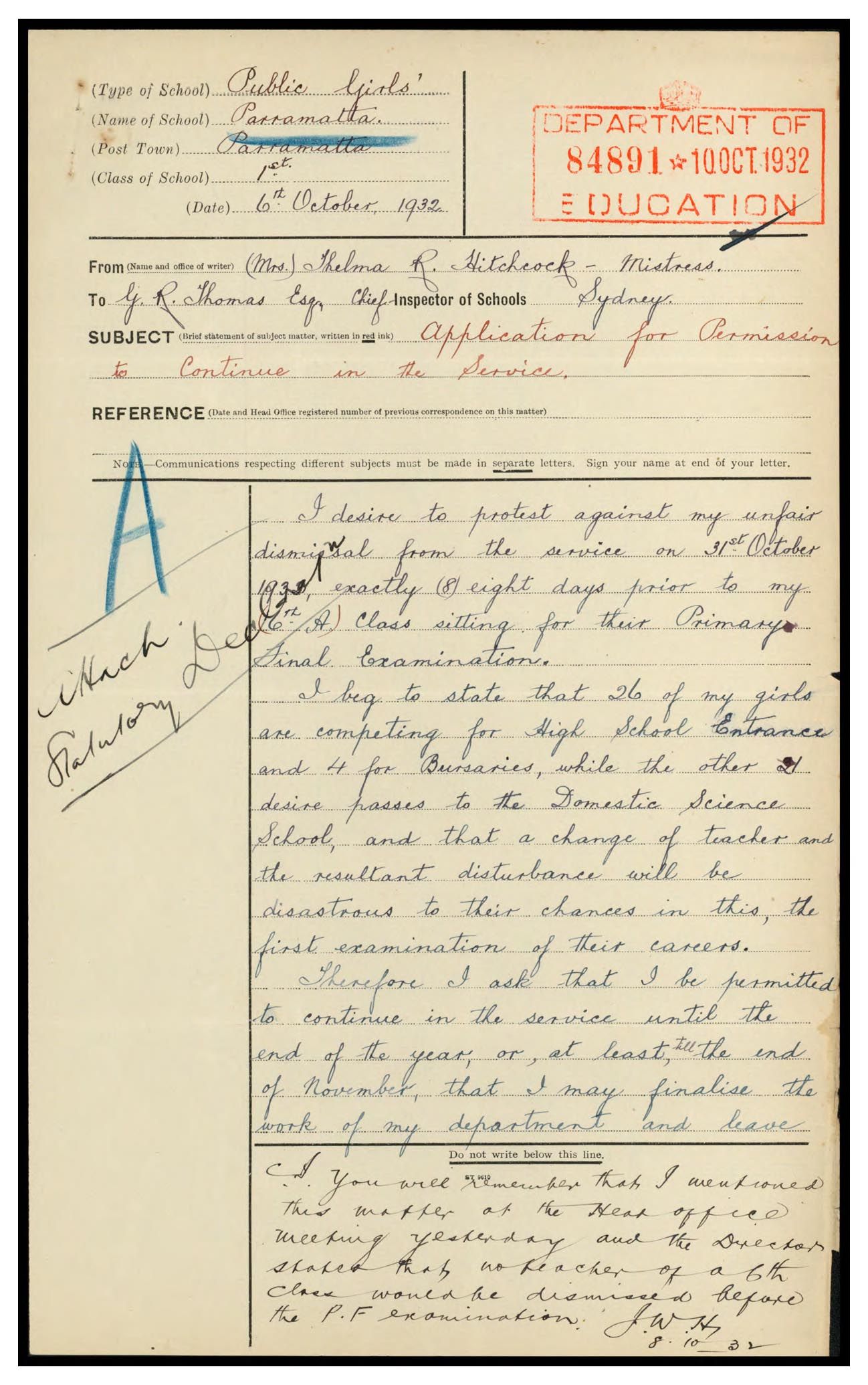Married women teachers declarations
In 1932, against the backdrop of the Depression, the NSW Government passed the Married Women (Lecturers and Teachers) Act. This Act restricted the employment of married women in the Department of Public Instruction, which meant that currently employed married women faced dismissal and any woman intending to marry had to resign upon doing so.
However, married women teachers could apply for an exemption by completing a statutory declaration every year explaining their circumstances. Most applied on the grounds of hardship, combined incomes being inadequate to support a family, supporting husbands unemployed due to illness or injury (especially after service during World War I), or supporting family members.
We hold copies of 693 declarations for exemption submitted by married women teachers for the years 1932–1935 as part of series NRS-12294 Special bundles [Public Service Board], which have all been digitised and are available to view in our State Archives catalogue.
This webinar explores the declarations and how to find them.
Example from the records
Browse allFamily history
Browse all
Selected immigration records
This index and the associated digital images have been created as part of a partnership between MHNSW and Ancestry.com. Search 8,000+ entries from 1838 to 1887
![Government Printing Office; NRS 4481, Glass negatives. NRS-4481-3-[7/15883]-M2439 | Government Printing Office 1 - 30700 - Supreme Court, King and Elizabeth Streets, Sydney [From NSW Government Printer series: City Views]](https://images.mhnsw.au/fotoweb/embed/2024/09/82612b7c7ba94f9ea7a37c58108c6445.jpg)
Equity Court records
Since 1823 the Equity Jurisdiction has dealt with matters of fairness and the enforcing of rights not recognised at Common Law

Electricity Commission
These photos record the power generation and transmission assets of the organisation and document the working conditions and social events of its employees

Divorce – decrees nisi
A decree nisi is the first stage in finalising a divorce. It is a conditional court order confirming that the court accepts the grounds for divorce and that all legal requirements have been met
